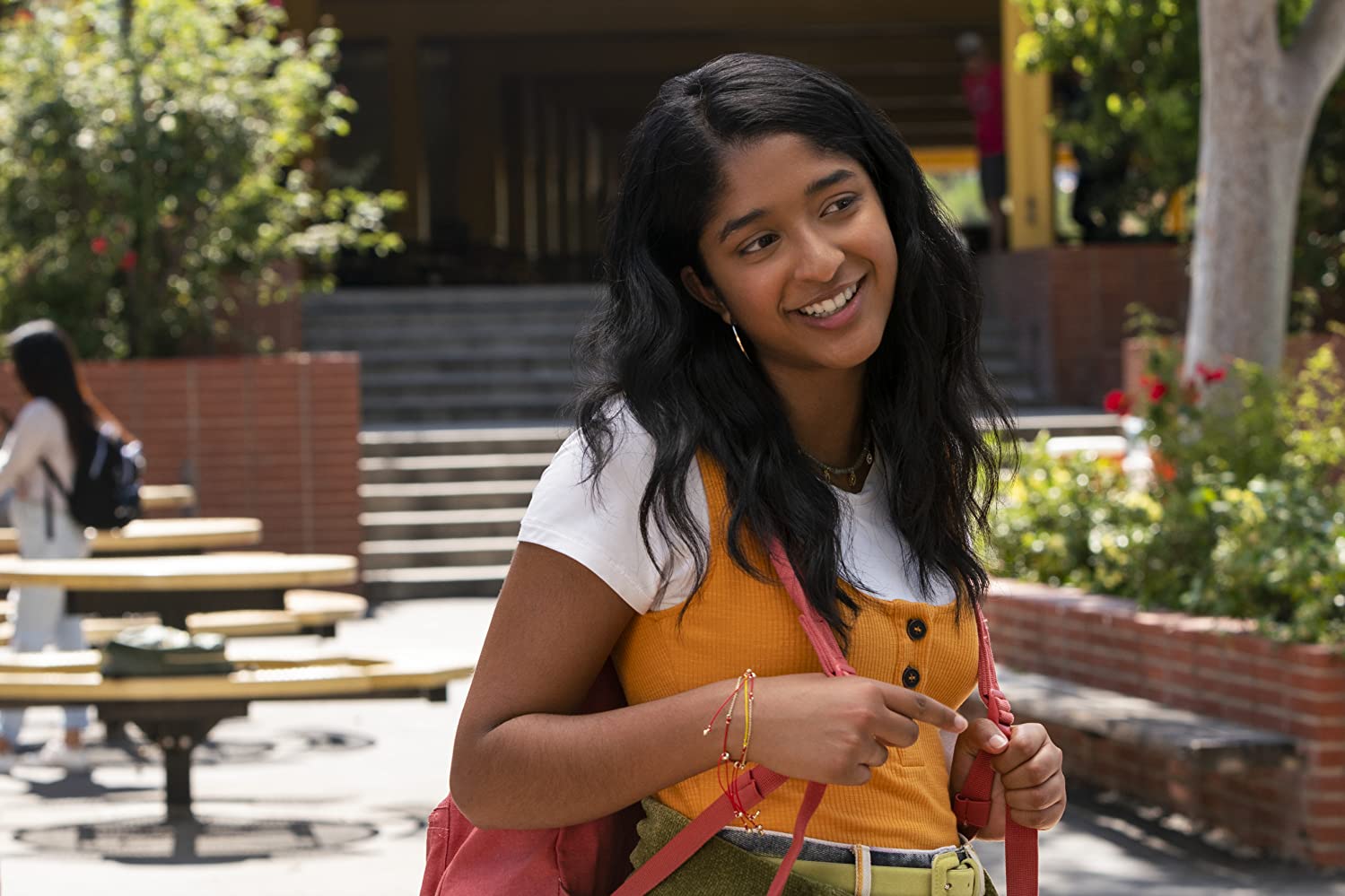When I first saw Netflix’s new teen series Never Have I ever I honestly did dismiss it for a day or two, thinking it looked too young. I was wrong. But not about it being youth-orientated, in fact, one of the show’s great strengths is its believably young protagonist Devi who is terrifically arrogant yet vulnerable. Devi is its defrosting heart and through her bereavement, teen sexuality and being an ambitious second-generation immigrant is explored. Oh, and tennis star John McEnroe narrates.
Maitreyi Ramakrishnan, aged 18 in real life, portrays Devi Vishwakarma, present in all episodes but never overbearing. This is wise as several of her high school problems could quickly descend into well-trodden storylines; avoided by sharing focus with other classmates and family. Devi’s communication issues are emphasised by narrator McEnroe’s commentary, which is not overdone. Devi regularly goes to therapy, for once portrayed realistically by the ever-funny Niecy Nash (Scream Queens). The series is subtly for all ages. It’s other characters, like older cousin Kamala or loveable wide-eyed Ben, paint a rather comprehensive picture of being American Indian, but foremostly a high schooler.
One of my favourite characters was Devi’s mum, Nalini, a strict parent who crucially never came close to being stereotypical. Nalini facilitated the connection to the show’s premise using infrequent flashbacks to explore the death of her husband and Devi’s father. The theme of grief produced many poignant moments and kept the show from being overly focused on high-school issues. This element was inspired by the creator Lang Fisher’s own history and was complemented by the concept of the lead being a fashionable, South Asian American, clearly inspired by Mindy Kaling. You don’t have to like The Mindy Project to enjoy this, it has a completely different sense of comedy, but there are similarities.
The show manages to remain light and comedic while engaging with difficult themes such as sexuality, race and disability. One may be tempted to view the shows turn to comedy as a cop-out, and an excuse to only loosely focus on the Indian-American experience. However, I feel its comical backdrop makes the show accessible to a new generation. Teenagers now are considerably more aware of and in support of diversity in communities, mental health issues and the LGBTQ+ community. Never Have I Ever does not congratulate themselves for including diverse characters, making the show a refreshing normalisation and appreciation of people from all walks of life. The ageing of the main characters, from innocent 15-16-year-olds to adults is sure to reflect the newfound maturity of Devi and her friends as well as continuing to shine a spotlight on the very real and impactful issues teens face.
With confidently established characters and a practised quick-witted format, the first season was a pleasure to watch. A new season has already been announced and will hopefully bring us more delightfully awkward interactions and delve deeper into the unique dual heritage of its lead and her entertaining journey. Never Have I Ever is ten short episodes long, but fills every moment with its clever and meaningful plot, making for a funny, heartwarming and family-friendly addition to Netflix’s catalogue. I think I might just go and re-watch the first season!
Image Credit: IMDb

